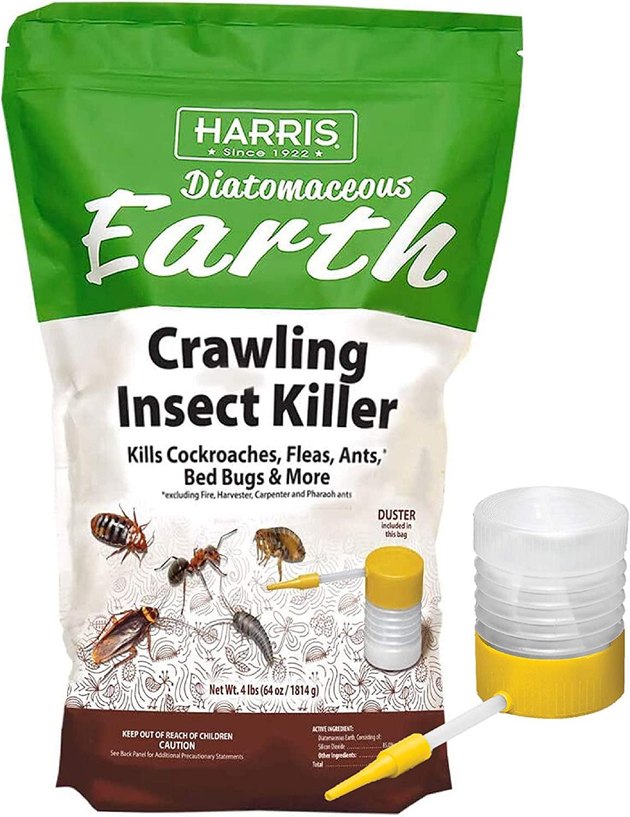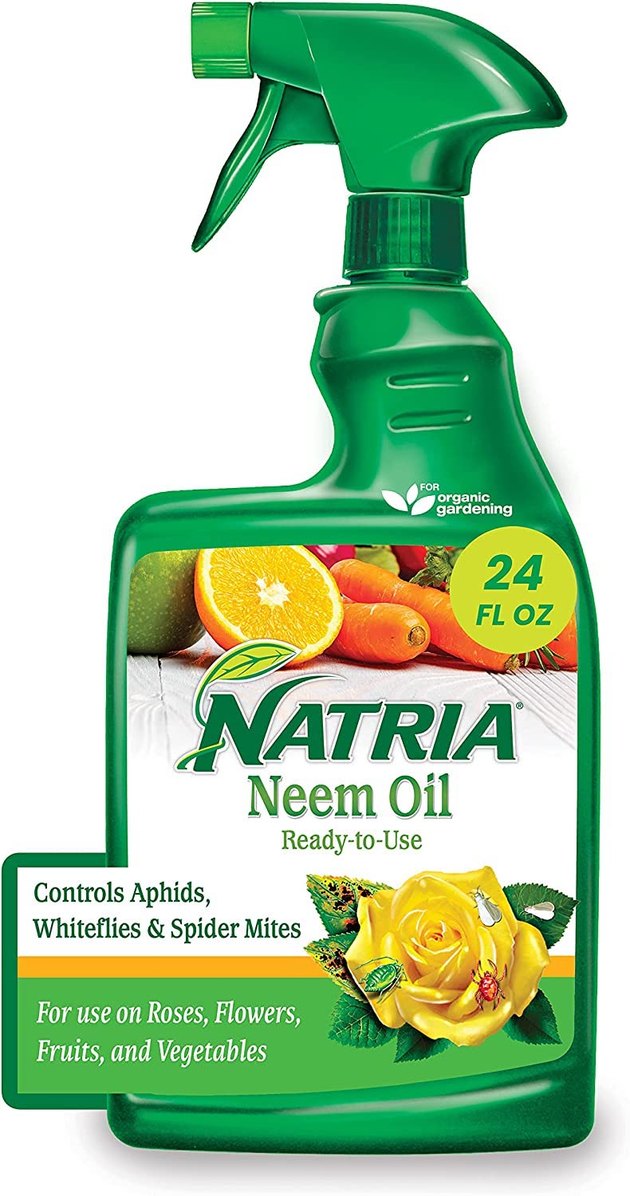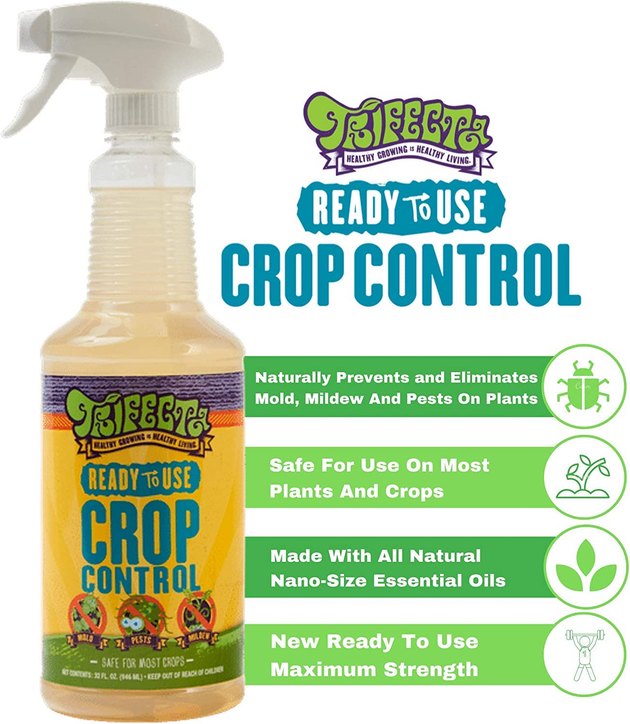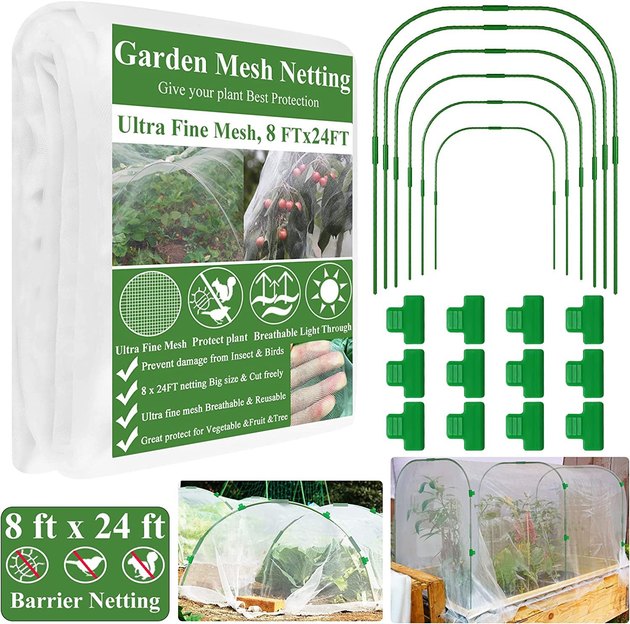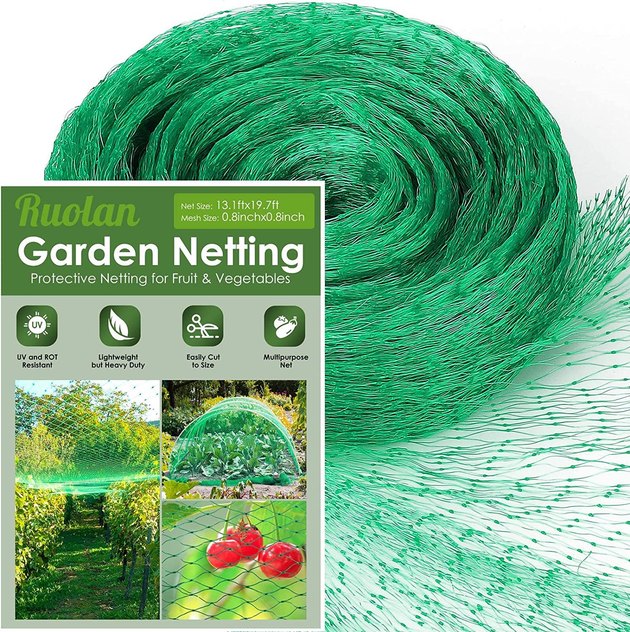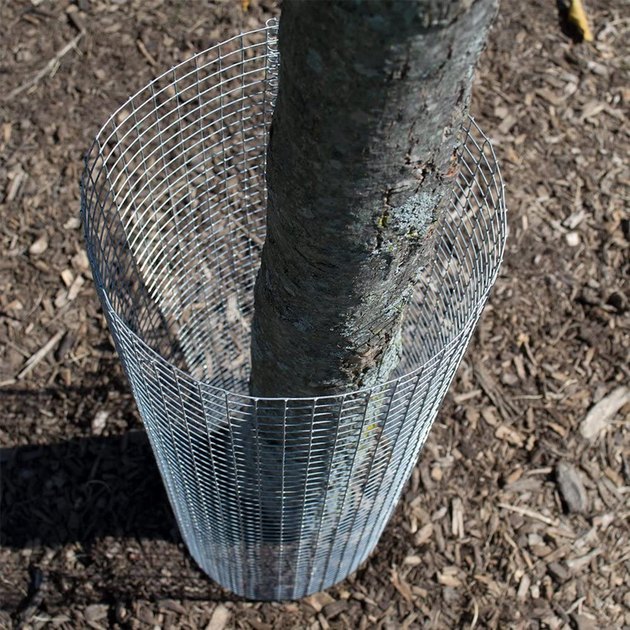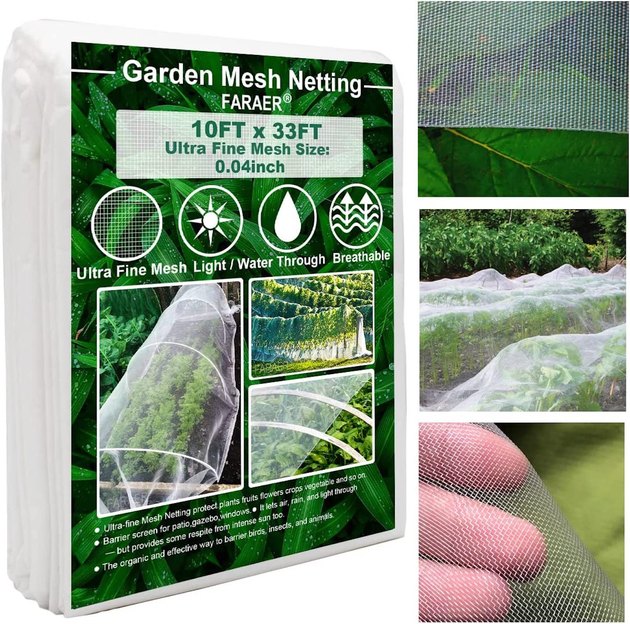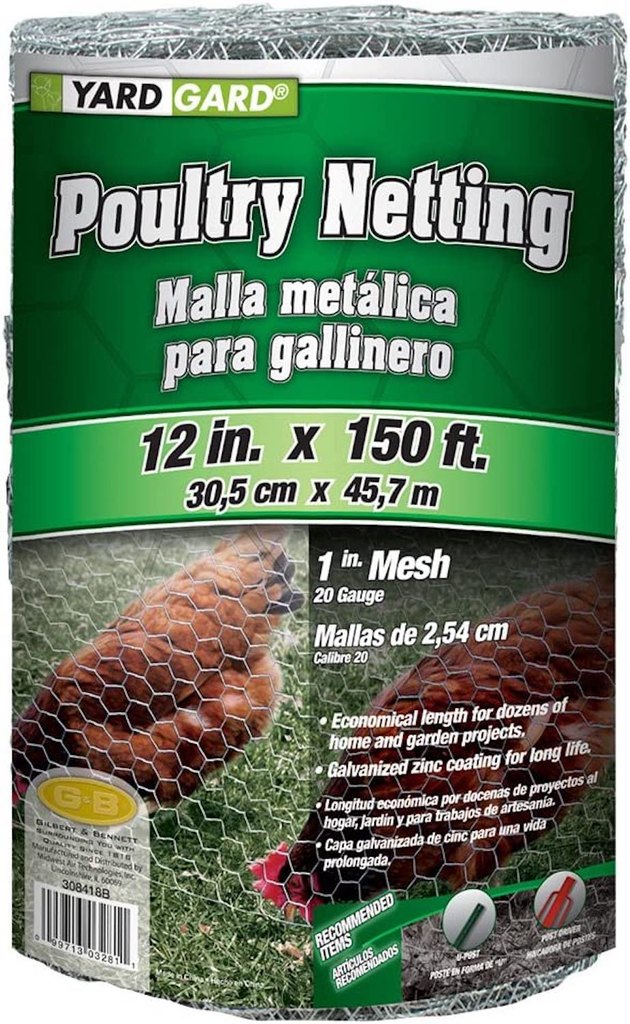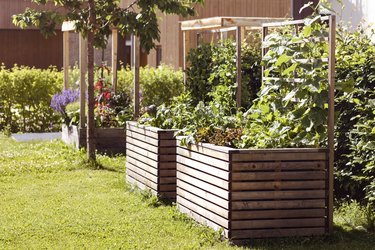
Between weeds, strange weather and dreaded pests, gardeners seem to always be facing one battle or another. Growing in a raised garden bed allows for more control, as well as offers easy access leading to its functionality. This is especially beneficial to those with mobility problems or where the native soil is poor. Regardless of the benefits, pests don't care and can quickly decimate your precious vegetable garden.
Various pests can become problematic in your garden even though it's raised. Everything from raccoons, rabbits, rats and deer along with insect pests like aphids, cutworms, squash bugs, slugs and snails, can become real problems in the garden. Fortunately, there are various safe products you can use to eliminate unwanted visitors or at least deter them that offer plant protection.
Video of the Day
Video of the Day
To assist you in purchasing the best product for your needs and removing problematic pests, we offer some basic gardening tips for dealing with common garden pests. We also cover some of the best pest control products and their features.
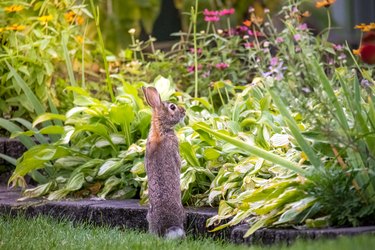
Tips and Considerations When Buying Pest Control Products
Common Animal Pests: Depending on where you live and the condition of the surrounding area, some of the most common animal pests that can wreak havoc on your veggies are rats, deer, rabbits and raccoons. Some are easier to control than others:
- Rabbits are cute until you see your green leafy vegetables eaten. The easiest way to control rabbits in a raised bed is by making it too high for them to jump inside. Making sure the raised bed is at least 3 feet tall will keep the rabbits at bay. You can also attach hardware cloth to the bottom and have it extend up each side by a few inches to prevent digging from ground level.
- Although deer can jump fences over 10 feet tall, they prefer seeing where their feet will land. Therefore, they are less likely to jump into raised beds with tall sides, but that won't keep them from eating plants they can get to from the sides. The easiest way to deter them is by using chicken wire, row covers or structures that keep them out.
- Using barriers is also the best option when dealing with pesky raccoons. When it comes to rats, using physical traps and making sure the surrounding area is clean of any trash is the best option.
Common Insect Pests: When it comes to the most persistent and problematic raised garden pests, the award has to go to the insects. Common insects that can destroy plants and affect fruit production are aphids, cutworms, caterpillars, squash bugs, squash vine borers, snails and slugs, along with various beetles.
As with all pest problems, quick discovery, identification and treatment are imperative to keeping the plants healthy. The type of pest will identify what treatment is best. Gardeners have organic and non-organic options for pest control. Products include foliar sprays, soil treatments and barrier options, along with hand-picking.
There are various options in raised garden bed covers you can use for plant protection. Protective covers include bird netting, plastic sheeting covering raised chicken wire, and a hoop house with a plastic cover or row covers. You can even purchase DIY-raised garden kits. The garden bed kit contains everything you need to construct the bed along with a tall covered structure that fits over the bed, keeping pests at bay.
Read Product Labels: Whether you're using organic or synthetic pest control products, always read the label before using. Follow instructions on mixing, application and the frequency of use, along with any precautions while using the product. Some pest control products are toxic and applying more isn't better, as you can end up killing your plants. Additionally, some products can damage plants when applied during sunny conditions. Control the pests and keep your plants healthy by reading the label first.
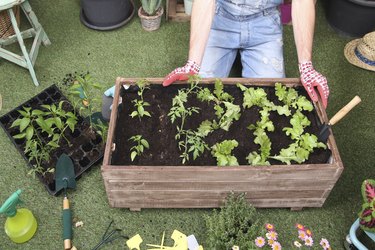
1. Harris Diatomaceous Earth With Powder Duster
Diatomaceous earth is considered organic and is made up of ground-up fossilized oceanic skeletons producing sharp razor-like pieces that cut into the insect's soft membranes, resulting in dehydration, irritation and eventual death. It's effectively used against crawling pests like slugs, beetles, snails, cutworms, caterpillars, aphids and ants, to name a few.
This product contains 4 pounds of 100% freshwater diatomaceous earth. You also receive a powder duster, making the application of the product easier. The product is ready to use so there's no mixing. Any insects coming in contact with the product die in around 48 hours.
2. Natria Neem Oil Spray
This ready-to-use organic neem oil spray from Natria comes in a 24-ounce bottle that prevents various disease problems, along with killing various garden pests. It's safe to use indoors or outside and can be used year-round. Some insect pests it protects your raised garden planter boxes from include aphids, leafhoppers, leafminers, armyworms, beetles, caterpillars, Japanese beetles, whiteflies and scales.
It also prevents diseases like black spot, and downy and powdery mildew, along with botrytis. This multipurpose fungicide and insecticide are safe to use up to the day of harvest.
3. Trifecta Natural Pesticide, Fungicide, Miticide and Insecticide
This four-way product will keep problems at bay in your raised garden, as it deals with insect pests and mites and treats fungal diseases. It comes in a 32-ounce ready-to-use spray bottle and is made from natural ingredients. The active ingredients include food-grade oils of thyme, clove, garlic, peppermint, corn and rosemary, as well as citric acid and geraniol.
Garden pests it treats include aphids and various mites, including spider mites. You can also use the product for problems with gray mold, powdery mildew, botrytis and other fungal problems. There's no residue of the product left on your plant's foliage 72 hours after treatment.
4. WYRJXYB Garden Mesh Netting Kit
This garden mesh netting kit covers an area of up to 8 feet by 24 feet, so it's large enough to protect even the largest raised garden boxes. The mesh netting is made from heavy-duty polyethylene and consists of 0.8-millimeter by 1-millimeter ultra-fine mesh. The mesh will exclude most critters and insects from your plants.
The kit also contains six mini greenhouse metal hoops that are adjustable and measure 25.6 inches wide and 31.5 inches tall. You can easily cut the mesh netting to the appropriate size to cover the hoops and secure it in place with the 12 included clips. The netting kit is easy to install and will protect your raised garden bed year-round.
5. Ruolan Bird Netting
If birds seem to be a problem in your raised garden beds, this bird netting might help solve the problem while offering plant protection. The polyethylene netting is heavy-duty and resistant to rot and harmful UV rays, and comes in a large size of 13 feet by 20 feet.
The mesh size is 0.08 inches by 0.08 inches, which is large enough to allow for water and sunlight but small enough to keep birds from attacking your developing fruits and veggies. The bird netting is easily cut to the desired size and attached to wooden stakes or hoops installed around your raised garden bed.
6. YARDGARD Silver Hardware Cloth
Whether you need to repel rabbits or other ground-burrowing critters from your raised garden, this roll of hardware cloth will get the job done. This 23-gauge hardware cloth comes in a roll that's 2 feet wide and 25 feet long, but also comes in other lengths.
It's heavy-duty, lightweight and galvanized with a double zinc coating, adding to its resistance to rust. You can easily cut the hardware cloth to size using your hand tools. It's flexible, so you can easily fit it to form around your raised bed. The hardware cloth is perfect for other gardening projects, such as using it around trees as a tree guard.
7. FARAER Row Cover Garden Netting
If you need to add a floating row cover over your plants in your raised bed, then this garden netting from FARAER will do the trick. The netting is 10 feet wide and 33 feet long, and the ultra-fine mesh is 0.8 millimeters by 1 millimeter. It's lightweight and durable, made from polyethylene that's easy to cut to size.
The netting also acts as a bit of shade cloth, depending on its positioning, offering 25% shade and 75% light transmission. It's thin enough to offer good airflow, and you don't have to remove the netting to water your plants or fertilize using a liquid feed. You can cover your plants directly with the cloth, attach it to stakes or use it to cover hoops.
8. YARDGARD Galvanized Chicken Wire
Chicken wire is a good economical solution when you need to create a barrier to keep pesky critters out of your raised garden bed. You get a roll that's 12 inches wide and 150 feet long, so there's plenty to create a larger barrier around your bed.
The flexible chicken wire is lightweight but strong and made from 20-gauge zinc-coated steel with a hexagonal weave. Because it's galvanized, it offers long-lasting protection from rust. The company also offers the product in a PVC option that boosts the product's looks and longevity.
